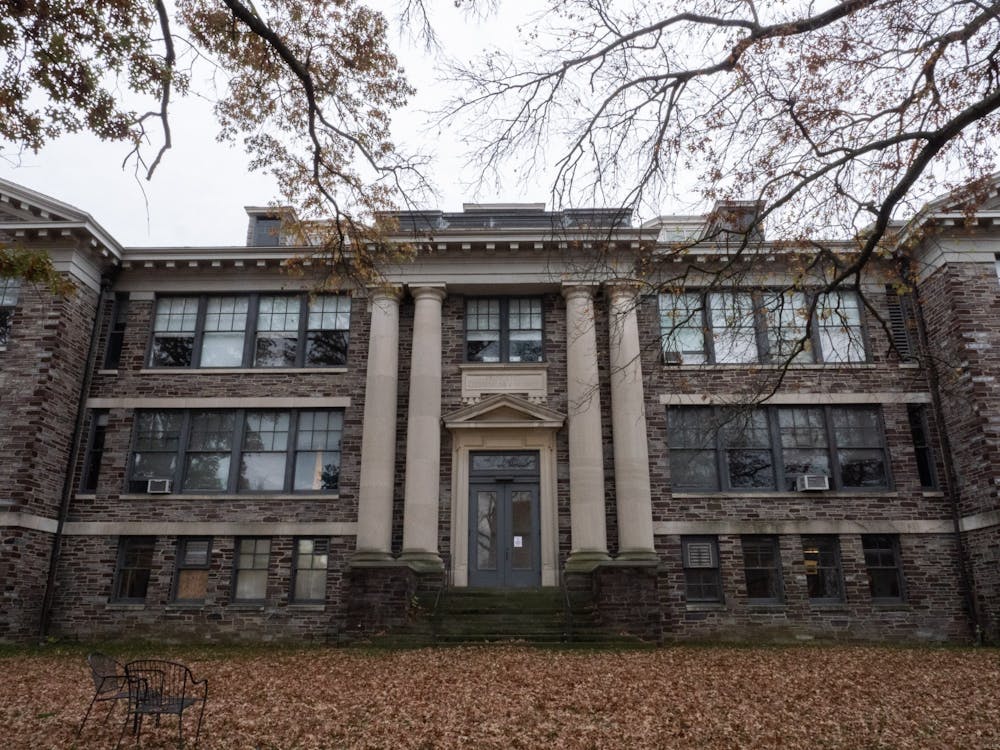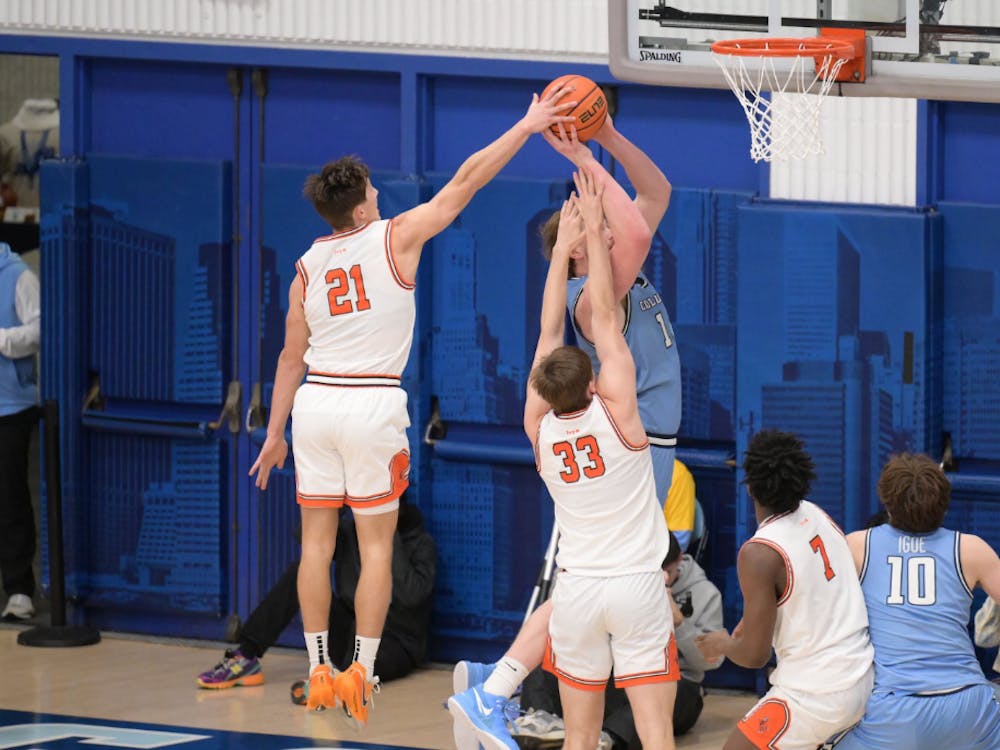On the evening of Nov. 15, juniors and seniors in the University’s Program in Visual Arts opened their studios for community members to observe the students’ art. Many of the student artists displayed posters, designed by juniors in the department, next to their studio spaces, according to multiple students in attendance. The posters had the words “Fire Joe Scanlan – VIS students” or “Fuck Joe Scanlan – VIS students” typed in boldface over a plain brown background.
Joe Scanlan is a tenured professor in the visual arts department. He served as Director of the Visual Arts Program from 2009–2017.
On Nov. 3, Scanlan used the n-word in his VIS321: Words as Objects seminar. Scanlan said the word while discussing a poem by Black poet Jonah Mixon-Webster, which caused several students to walk out. Many refused to return to class in the following weeks.
After Scanlan’s use of the n-word in the seminar, the Office of the Provost, at the request of Omar Farah ’23, conducted an initial assessment of the situation and found no violation of the University’s Policy on Discrimination and/or Harassment.
Farah is a Managing Editor for The Daily Princetonian, who has recused themself from any coverage related to this incident.
Following Scanlan’s use of the slur, Ari Riggins ’23 and Priyanka B. Aiyer ’23 co-wrote an open letter and shared it with other VIS students. The letter called on the University administration “to reopen their investigation and critically engage with the events which took place and their impact on students.” The letter also called on the Visual Arts department “to reconcile with the space they have held for racism and disrespect.”

One of the posters that was displayed at the VIS open studio event on Nov. 15.
Courtesy of Noori Zubieta ’24.

“The [U]niversity’s response is profoundly disappointing and shows a lack of regard for lived student experience, particularly the experience of BIPOC students,” the letter states.
At the time of publication, 21 students — all juniors or seniors completing concentrations or certificates in the department — have signed onto the letter from Riggins and Aiyer.
“There was more to be done on the University’s side to advocate for students,” said Julia Stahlman ’24, who is pursuing a VIS certificate and signed onto the letter. She said she thinks the initial assessment conducted by the Office of the Provost was not thorough enough, given that “there was evident harm done to students in the class.”
Riggins wants the administration to “restart their investigation, since it’s clear that harm was done. I don’t understand why the investigation was so short.”

She expressed support for a reform of University rules, saying that “if they don’t regulate this type of behavior, they should.”
Farah, a Black student in the class, published an op-ed in the ‘Prince’ on Nov. 11, arguing that Scanlan’s actions amounted to racial harassment and calling on the University to conduct a more thorough investigation.
“You shouldn’t be able to harass students and keep your job,” they wrote.
Students in the class told the ‘Prince’ that Scanlan’s use of the n-word was not in the context of a direct quotation, though Scanlan maintains that he was citing Mixon-Webster’s ‘Black Existentialism No. 8: Ad Infinitum; Ad Naseum,’ which consists only of the n-word.
In a Letter to the Editor, Scanlan wrote that his use of the n-word was “grounded in [Mixon-Webster’s] long-term interest in the word and how it functions in his poetry, as well as the pedagogical progression to the analysis of a poem where a word functions as an object.”
“I am extremely sorry that I overestimated my familiarity with my students and assumed that we could enter a discussion of this 20-page, one-word poem about the n-word without first making some ground rules about limits for the usage or even the discussion of the word at all,” he wrote.
At least two Black artists with fellowships at Princeton have spoken out against Scanlan on social media. Tiona McClodden, a 2021–23 Princeton Arts Fellow, posted screenshots of Farah’s op-ed on Instagram on Nov. 18, writing in the caption about “the dark side of tenure.”
“So much of this type of archaic racist presence exists in these academic spaces because of this forever job mess,” McClodden wrote in the caption of the post. “Men like Scanlan are shifted across campuses after offenses, coddled + enabled by peers in these spaces.”
She wrote that her classes are “not held in the VIS Arts building because I have no interest of proximity to Scanlan,” and ended the caption with “so in full solidarity with the Vis Arts students… Fire Joe Scanlan.”
Mark Thomas Gibson, a 2022 Guggenheim Fellow and recipient of the 2021–22 Hodder Fellowship at Princeton, posted a photo on his Instagram displaying “Fire Joe Scanlan” in black handwritten letters, with “- Any reasonable sane human being!” penciled in below.
Gibson wrote in the caption that Scanlan “uses tenure like a hood to hide behind, an open anonymity that allows for punching down at young students with a wink.”
Students will still be able to complete the course and receive a grade without further interaction with Scanlan should they choose to do so, explained Jeffrey Whetstone, Director of the Program in Visual Arts, in an email to the ‘Prince.’
“For the rest of the semester, VIS 321: Words as Objects taught by Joe Scanlan, is structured as lab time where students work on their final projects in the various shops in VIS — the sculpture shop, the type shop, etc.,” Whetstone wrote.
The department also appointed Simon Wu ’17 as a co-advisor in the course.
“The students could choose to work with the co-advisor or Professor Scanlan to finish their final projects,” added Whetstone.
In an email to the ‘Prince,’ Scanlan wrote, “As was always the case, students have the option of working in the classroom, in other labs in the VIS program, or in studio. I am fine with co-advising, Simon Wu is a very experienced and knowledgeable and a welcome addition to the class.”
Paige Cromley is a Senior News Writer for the ‘Prince.’
Please direct any corrections requests to corrections [at] dailyprincetonian.com.








